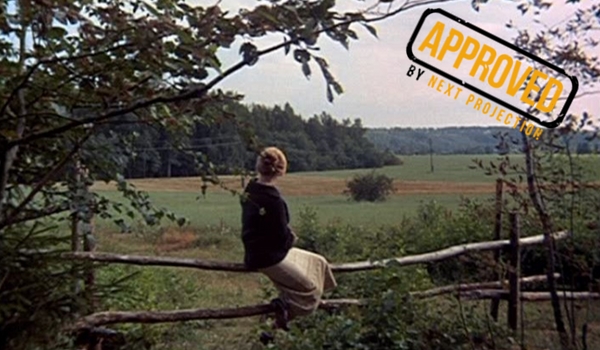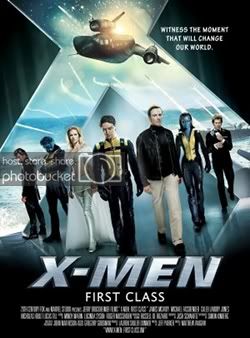Tarkovsky: Zerkalo
With great film, each subsequent viewing has the power to make you believe that this is the time you truly “got” the film. You convince yourself that you only understood the film superficially on previous viewings, but this is the time that you were totally in tune with the images on display. You are able to contextualize each scene with more objectivity than any previous viewing and have numerous “aha!” moments wondering why you couldn’t see things so clearly before. A great film has the ability to do this to you for at least a few re-watches, a masterpiece will do this to you every single time you revisit the film. The trick is to keep these new revelations in objective context on the back burner as they betray the emotional context, and a Tarkovsky film should be felt and not rationalized. If you are able to strike that balance then you are rewarded with the richest experience that one could hope for when revisiting a film.
Zerkalo finds Tarkovsky at his most autobiographical. It feels like a deeply personal film with elements of guilt that I can relate all too well to. I know what it is to harbor guilt for emotional bridges I may have burned over the years because of my inability to properly convey and articulate my true feelings for someone. You carry these burdens with you through adulthood and may never find an outlet that allows you to unburden yourself. Tarkovsky seems to carry a lot of pain from his childhood and lacks the usual social abilities to unburden his guilt and reconcile his deep admiration for his mother and the underlying contempt for her part in his own identity. We don’t all have an artistic medium in which to try and reconcile this contradictory set of feelings, but Tarkovsky’s mastery of film gives him a rare opportunity to try and make amends and exorcise some of the demons that we all carry with us. This concept is beautifully articulated in the beginning sequence when the stuttering boy is finally unburdened from his deficiency in communication, just as Tarkovsky is able to use film to finally overcome his own communicative deficiencies.
Mirrors appear often in the film, which one would expect from a film called Mirror. They serve as constant reminders of the falsehoods of our own self image. They force us to confront our own inadequacies, freed from the alterations in perception that we delude ourselves with. They remind us of grace that we are incapable of possessing that we may see in others, and worlds that we cannot occupy that we perceive others as occupying. Mirrors both unite us in our own humanity and separate us from our fellow man as we are haunted by the stark truth that betrays our mental perception of ourselves. They force us to contend with our guilt and remind us of our own mortality. They bring back memories that we try for our entire lives to suppress, and remind us that we can never go “home” as the image staring back is stripped of youth and hardened by life experience.
One concept that I have always loved from this film was the proclamation that “words are inert” by the disembodied voice that acts as an avatar for Tarkovsky himself. I have always believed in that proclamation and find that no form of communication is capable of capturing the essence that resides in us all. Words are woefully inadequate for capturing our true intent, but Tarkovsky tries to use film as a means of expressing that which cannot be expressed. This proclamation on the flaccidity of words could also be Tarkovsky rejecting his father, who is a poet and expresses himself entirely through words. He wants to avoid the mistakes of his father and rejects him for his abandonment and expresses this with his rejection of words. The father appears as a disembodied voice that haunts Tarkovsky’s thoughts and memories with his poetry. Tarkovsky finds he is unable to avoid the same mistakes with his own son and portrays himself as a disembodied voice that will also become nothing more than a faint memory in his son’s life.
The filmmaking in Zerkalo is unparalleled and it is one of the finest and most stunning examples of an artist baring their soul for the world to see. Tarkovsky was a master of his chosen medium of expression and his mastery seemed to extend not only to every frame in the film, but to the very environments in which the film took place. Nature itself seemed to be at the beck and call of his artistic whims and natural forces set up a tepid agreement with him to bring forth a masterpiece. Water takes its usual place as essence of all life, insurmountable erosive force, and usher of time. The wind and the grass seemed to orchestrate complex choreography as they knew it was their one opportunity to appear in front of the camera of a master. Perhaps “mastery” isn’t the appropriate term. Tarkovsky just knew how to point his camera in the right place and let the mysterious universe enchant in its own way. This enchantment, combined with Tarkovsky’s artistic sensibilities and profound grasp on the mysterious, create a masterwork of artistic introspection that may never be equaled.
-
http://twitter.com/NextProjection Christopher Misch
-
http://twitter.com/NextProjection Christopher Misch
-
http://twitter.com/NextProjection Christopher Misch
-
http://www.facebook.com/blevo Matthew Blevins













 Review: The Tree of Life
Review: The Tree of Life Review: The Tree of Life
Review: The Tree of Life Tarkovsky: Zerkalo
Tarkovsky: Zerkalo Review: Frontier(s)
Review: Frontier(s) Review: The Tree of Life
Review: The Tree of Life




















































